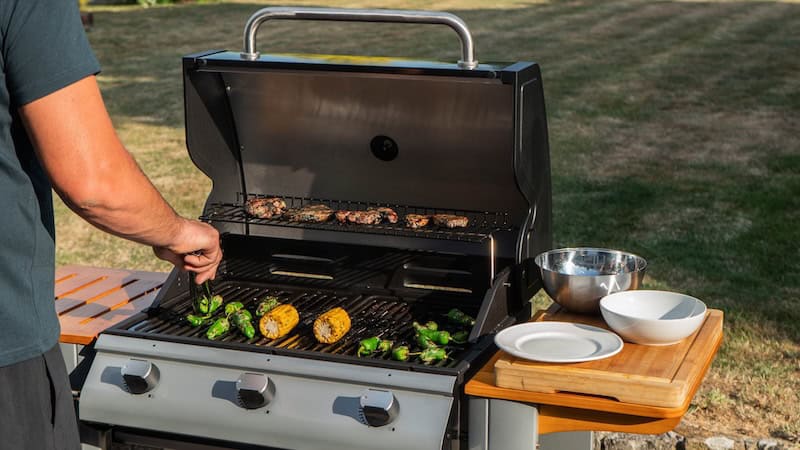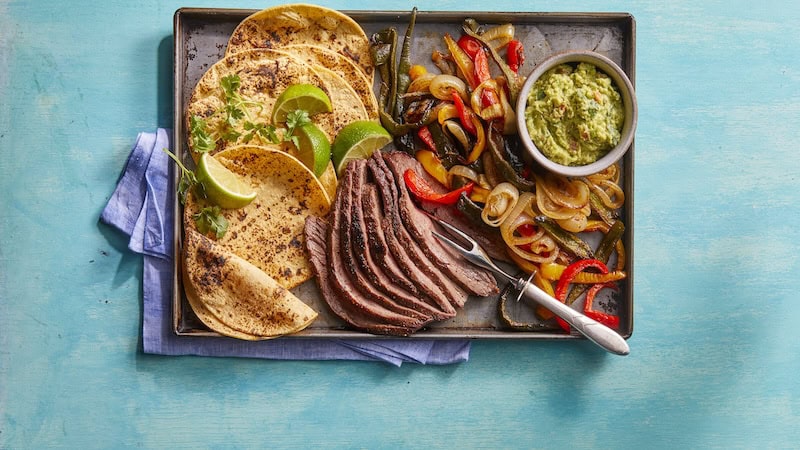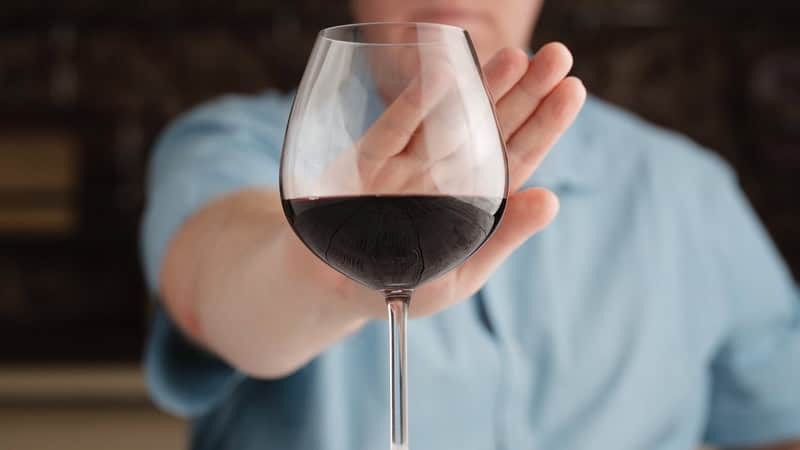Healthy Grilling Tips
Mind the grill and your health

If you want to enjoy summer’s favorite cooking method while still considering health, consider these tips for healthy grilling.
The late Anthony Bourdain once quipped: “Barbecue may not be the road to world peace, but it’s a start.” Indeed, cooking over flame is a joyful activity that makes food more exciting to eat, even if it can’t end wars. But along with those enticing smells and tastes can come some health risks if you’re not careful. With grilling season upon us, it’s time to brush up on food safety basics. Here’s how to enjoy the thrill of the grill without burning your health.
Tips for healthy grilling
Incinerate harmful bugs
Bacteria like E. coli in meat easily flourish in warmer temperatures. You don’t want to rely on imprecise methods like cutting into meats to determine if they are safe to eat. Instead, registered dietitian nutritionist, chef, and author of “The Low-Carb Mediterranean Cookbook,” Michelle Dudash, recommends using a digital instant-read thermometer to ensure you’ve cooked meats to the temperature needed to kill harmful bacteria.
“Make sure the thermometer probe is not touching bone, which can give an erroneous reading, and the notch on the probe is fully inserted into the thickest part of the meat,” says Dudash. Grill cuts of red meat like steak and pork chops to an internal temperature of at least 145 F, followed by a three-minute rest time. Poultry should be prepared to 165 F, fish to 145 F, while all types of ground meat (including beef and chicken) need to be heated to 160 F.
Handle with care
Pay attention to how you are handling meats during and after the grilling process to limit food poisoning risk. Once cooking utensils like tongs come in contact with meat that is not fully cooked, you should consider them contaminated. Make it a habit to use clean utensils and plates to remove cooked meat from the grill.
Eat up
You shouldn’t let cooked meats sit around too long after taking them off the grill. “The danger zone for meat and other potentially hazardous foods is between 40 and 140 F (so holding food at 41 to 139 F) and food should not be in this range for more than two hours, since harmful bacteria can replicate quickly in this temperature zone,” says Dudash. When in the “danger zone,” bacteria can double in as little as 20 minutes, per the USDA. Dudash explains that grilled meats should either be eaten soon after cooking, held hot above 140 degrees, or properly refrigerated.
Banish the char
When meats are seared at high temperatures, such as grilling, it creates compounds called advanced glycation end products — or AGEs — which, when consumed, can accumulate in your body and possibly raise the risk for certain cancers and other health conditions. Two such troubling AGE compounds are heterocyclic amines and polycyclic aromatic hydrocarbons. “Reducing charring on meats by grilling them at a lower temperature can limit the formation of these harmful compounds,” Dudash says. Avoiding direct contact between flame and food and flipping meat more often during grilling will also lessen the risk for charring and AGE production. “If you do char your meat, slice it off before eating,” advises Dudash.
Go lean
When fatty parts of meat melt (render) and drip through the grill grates, they generate smoke, which Dudash says increases the formation of cancer-promoting polycyclic aromatic hydrocarbons. Fat drippings also produce flare-ups which can cause a meat-flame contact and deposit unappetizing soot on the meat. Dudash recommends grilling leaner cuts of meat like chicken breast and pork loin more often and trimming away any excess fat before grilling. You can grill fattier meat on a cast-iron griddle which prevents fat from dripping through the grill grates.
Opt for gas
Some people prefer more traditional charcoal grilling, but one recent study found a much greater formation of polycyclic aromatic hydrocarbons when food was cooked using charcoal briquettes compared with liquid propane gas.
Bathe your meats
To lower levels of harmful chemicals, Dudash says you can marinade your meats before grilling. Some research suggests marinating meat in beer or vinegar can cut the production of polycyclic aromatic hydrocarbons. It’s thought that the antioxidants in these items act to keep meat safer. Other items used in marinades like red wine, citrus juice, olive oil, and herbs may work the same way. A marinade can also act as a barrier between meat and any chemicals that are carried up by smoke during grilling.
Move away
As reported in the journal Environmental Science & Technology, more polycyclic aromatic hydrocarbons from barbecue fumes can enter our bodies through the skin than from inhalation. To limit your exposure, make sure not to linger around the smoky grill when you’re sizzling up burgers.
Clean your grates
Grimy grates can harbor bacteria and AGEs. Plus, a spotless grate goes a long way in
preventing your food from sticking like cement and imbuing your meal with an unappetizing burnt flavor. The best time to clean a grill grate is when it’s piping hot, so immediately after you have removed your food from the grill or following several minutes of preheating.
Try more plants
Meat shouldn’t get all the live-fire love. According to Dudash, grilling plant-based foods poses a lower risk for AGEs and food poisoning from bacterial exposure. “Plant foods, like tofu and vegetables, have a higher water content making them naturally low in AGEs.”
Here’s to a healthy grilling season!
Delicious vegetable recipes for healthy grilling:
Create a Mixed Grill for Your Next Cookout
5 Elemental Grilled Vegetable Recipes
Grilled Sweet Peppers and Eggplant
Reprinted with permission from Environmental Nutrition, a monthly publication of Belvoir Media Group, LLC. 800-829-5384. www.EnvironmentalNutrition.com.
©2024 Belvoir Media Group. Distributed by Tribune Content Agency, LLC.


